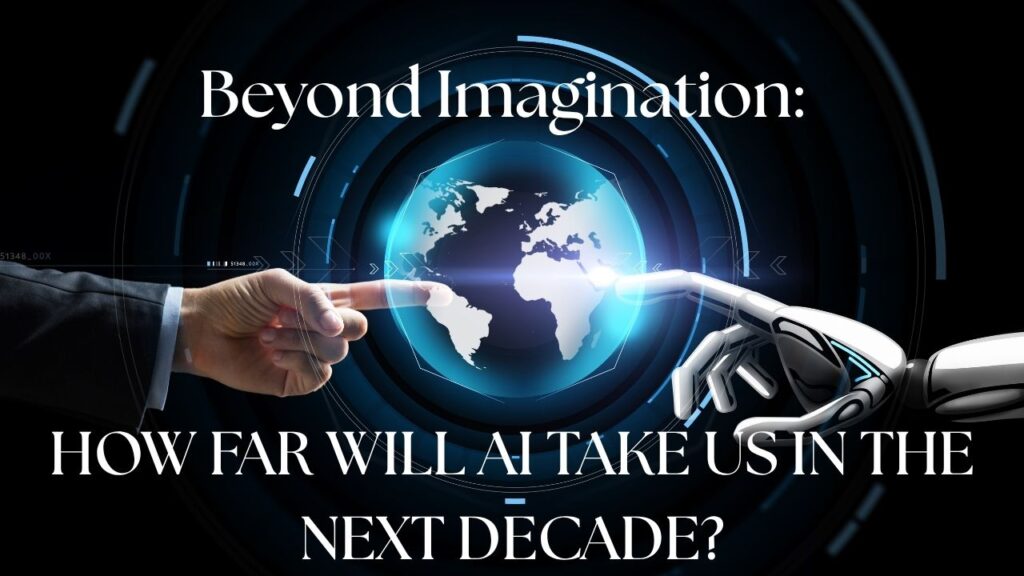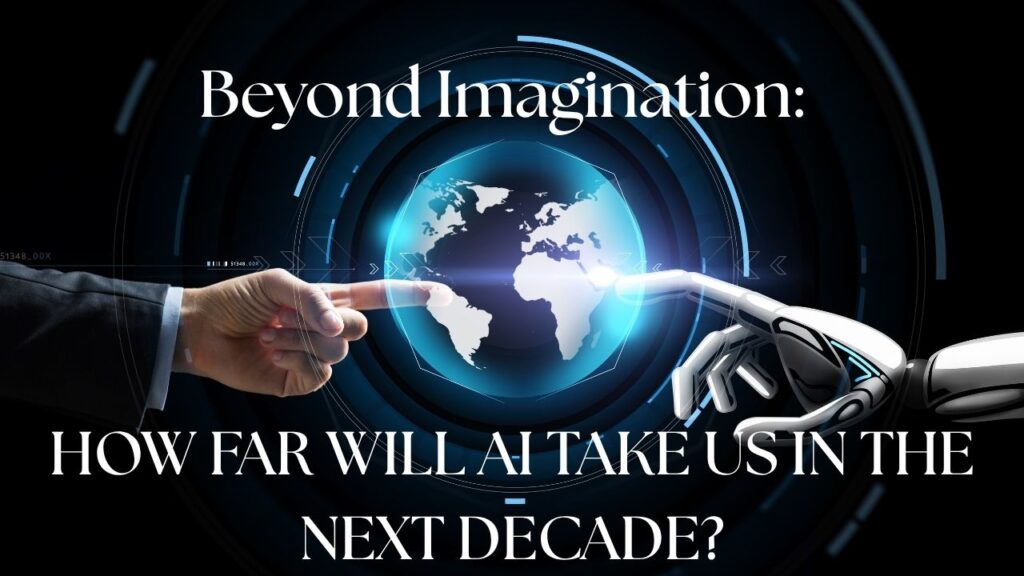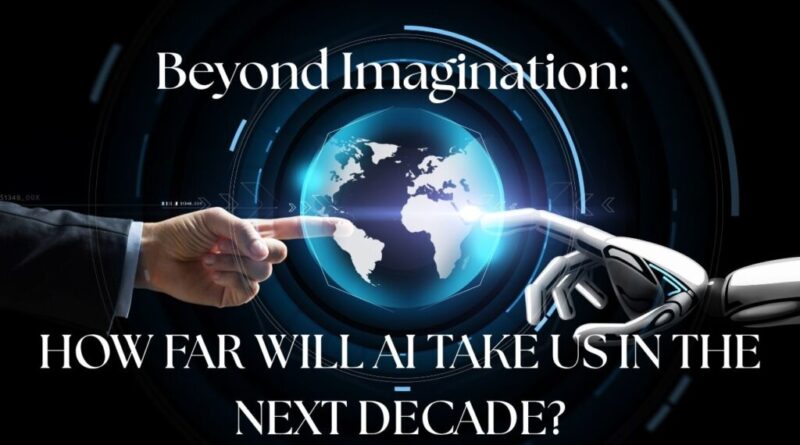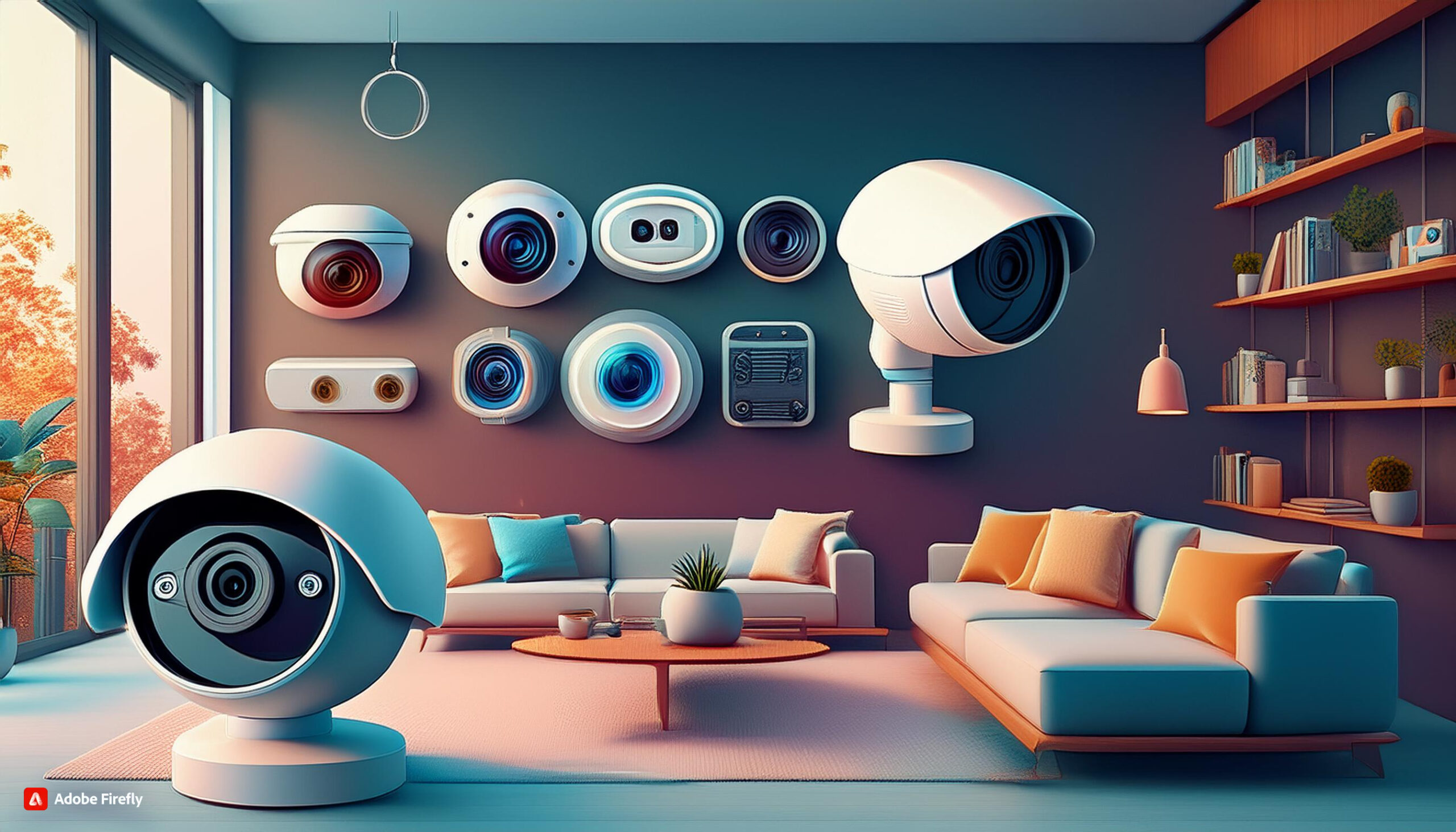Beyond Imagination: How Far Will AI Take Us in the Next Decade?


Artificial Intelligence (AI) has become a buzzword in recent years, but its impact on our lives is far from just hype. As we stand on the brink of a new technological era, it’s natural to wonder: how far will AI take us in the next decade? From 2025 to 2035, we’re likely to see unprecedented advancements that will reshape our world in ways we can barely imagine. Let’s dive into the exciting possibilities and potential challenges that lie ahead.
The AI Revolution: A Brief Overview
Before we peer into the future, it’s important to understand where we are now. AI has already made significant strides in various fields, from healthcare to finance, transportation to entertainment. Machine learning algorithms are getting smarter, natural language processing is becoming more sophisticated, and robots are performing tasks with increasing dexterity.
But what we’ve seen so far is just the tip of the iceberg. The next decade promises to bring about a true AI revolution, one that will touch every aspect of our lives and society.
AI-driven Innovation: Pushing the Boundaries of Possibility
Healthcare Breakthroughs
One of the most exciting areas where AI is set to make a huge impact is healthcare. In the coming decade, we can expect to see:
AI-powered diagnostic tools that can detect diseases earlier and more accurately than ever before
Personalized treatment plans based on an individual’s genetic makeup and lifestyle factors
Robot-assisted surgeries becoming more common and precise
Drug discovery processes accelerated by AI, potentially leading to cures for previously untreatable conditions
“AI in healthcare isn’t just about improving efficiency; it’s about saving lives and enhancing the quality of care for millions of people worldwide.”
Smart Cities and Infrastructure
Our urban landscapes are also set to undergo a dramatic transformation thanks to AI. By 2035, we might see:
Traffic management systems that predict and prevent congestion before it happens
Energy grids that automatically adjust to demand, reducing waste and improving efficiency
Smart buildings that optimize energy use, air quality, and comfort levels in real-time
Predictive maintenance systems for infrastructure, reducing the risk of failures and accidents
Education Revolution
The way we learn and teach is also likely to be revolutionized by AI. Some potential developments include:
Personalized learning experiences tailored to each student’s strengths, weaknesses, and learning style
AI tutors that can provide 24/7 support and guidance
Virtual and augmented reality experiences that make learning more immersive and engaging
Automated grading systems that free up teachers to focus on more meaningful interactions with students
AI Economic Impact: Reshaping Industries and Markets
The economic implications of AI are vast and far-reaching. Over the next decade, we can expect to see:
Job Market Transformation
The creation of new job categories that we can’t even imagine yet
Automation of routine tasks across various industries, potentially leading to job displacement
Increased demand for skills in AI development, data analysis, and machine learning
Productivity Boost
AI-powered tools and systems that dramatically increase efficiency in manufacturing, logistics, and service industries
Improved decision-making processes in businesses, leading to better outcomes and reduced costs
New Business Models
The rise of AI-as-a-Service platforms, making advanced AI capabilities accessible to businesses of all sizes
Personalized products and services tailored to individual preferences and needs
Novel ways of monetizing data and AI-generated insights
AI Workforce Transformation: Adapting to a New Reality
As AI continues to advance, the nature of work itself is likely to change. Here’s what we might expect:
Human-AI Collaboration
Increased collaboration between humans and AI systems, with each leveraging their unique strengths
AI assistants becoming commonplace in various professions, from law to journalism to customer service
Skill Development and Lifelong Learning
A greater emphasis on developing uniquely human skills like creativity, emotional intelligence, and complex problem-solving
Continuous learning and reskilling becoming essential to stay relevant in the job market
Flexible Work Arrangements
AI-enabled remote work tools making distributed teams more effective and common
Gig economy platforms using AI to match workers with tasks more efficiently
AI Ethics and Risks: Navigating the Challenges
While the potential benefits of AI are enormous, we must also be mindful of the risks and ethical challenges that come with this powerful technology.
Privacy Concerns
The need for robust data protection measures as AI systems collect and analyze more personal information
Balancing the benefits of personalization with individuals’ right to privacy
Bias and Fairness
Addressing biases in AI algorithms that could lead to discriminatory outcomes in areas like hiring, lending, and criminal justice
Ensuring diverse representation in AI development teams to create more inclusive and fair systems
Accountability and Transparency
Developing frameworks for explaining AI decision-making processes, especially in high-stakes situations
Establishing clear lines of responsibility when AI systems make mistakes or cause harm
Existential Risks
Managing the potential risks associated with advanced AI systems that could surpass human intelligence
Ensuring AI development is aligned with human values and goals
AI Predictions 2025-2035: A Glimpse into the Future
As we look ahead to the next decade, here are some bold predictions for how AI might shape our world:
By 2028, autonomous vehicles will be a common sight on our roads, dramatically reducing traffic accidents and changing the nature of transportation.
AI-powered personal assistants will become so sophisticated by 2030 that they’ll be able to handle complex tasks like financial planning and health management.
In 2032, we’ll see the first AI system pass a comprehensive Turing test, convincingly demonstrating human-like intelligence across a wide range of domains.
By 2035, AI will have played a crucial role in developing clean energy solutions, helping to mitigate the worst effects of climate change.
Throughout the decade, AI will continue to push the boundaries of scientific discovery, potentially leading to breakthroughs in fields like quantum computing and space exploration.
Embracing the AI Future: What Can We Do?
As we stand on the cusp of this AI revolution, it’s natural to feel both excitement and apprehension. Here are some ways we can prepare for and shape the AI-driven future:
Stay informed: Keep up with AI developments and their potential impacts on your industry and daily life.
Develop adaptable skills: Focus on building skills that complement AI, such as critical thinking, creativity, and emotional intelligence.
Engage in ethical discussions: Participate in conversations about the ethical implications of AI and help shape policies that ensure its responsible development.
Embrace lifelong learning: Be prepared to continuously update your skills and knowledge as the job market evolves.
Foster human connections: As AI becomes more prevalent, nurturing genuine human relationships and experiences will become even more valuable.
Conclusion: A Future Beyond Imagination
As we’ve explored in this article, the potential of AI to transform our world over the next decade is truly remarkable. From healthcare breakthroughs to economic shifts, from ethical challenges to scientific discoveries, AI is set to touch every aspect of our lives in ways we can barely fathom.
While the road ahead may have its share of challenges, the possibilities are incredibly exciting. By staying informed, adaptable, and engaged, we can help shape an AI-driven future that enhances human potential and creates a better world for all.
The next decade of AI development promises to take us beyond our wildest imagination. Are you ready for the journey?






